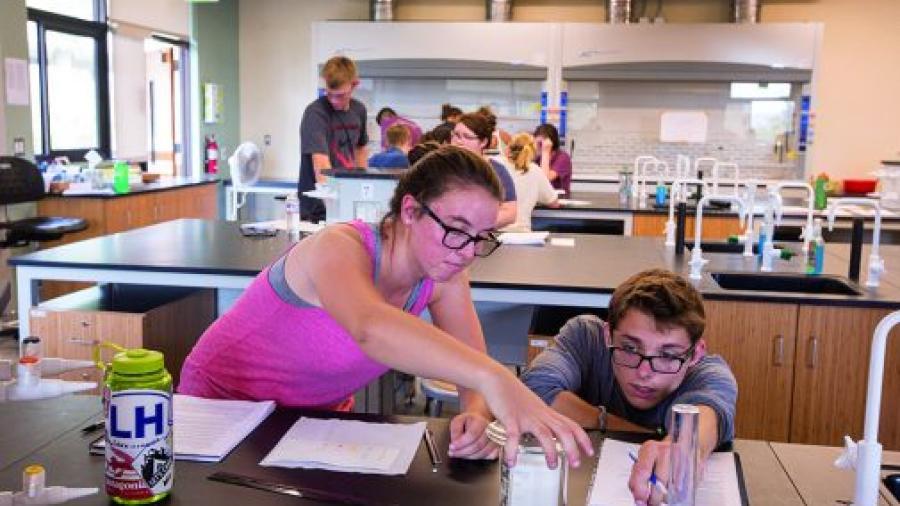Westmont Magazine Fletcher Jones Grant Completes Renovation

The $750,000 Award Helps Westmont Finish Phase Two of Renovating Biology and Chemistry Labs and Classrooms in Whittier Hall
The Fletcher Jones Foundation awarded a $750,000 grant to Westmont for the second phase of renovating Whittier Hall, including classrooms, laboratories and storage space for the biology and chemistry departments. The work will take place this summer, so Whittier will be completely upgraded by fall 2018. In 2014, the Fletcher Jones Foundation gave $750,000 for initial improvements in Whittier, which opened in 1985.
“The grants from the Fletcher Jones Foundation have transformed the college’s ability to recruit top students and offer innovative and engaging collaborative learning experiences,” President Gayle D. Beebe says. “The renovations will equip science majors to work in the laboratory and conduct independent research, helping them cultivate the scientific reasoning, collaboration and communication skills required for success in the sciences.”
“Undergraduate research is a hallmark of a Westmont education,” says Provost Mark Sargent. “Students gain extensive lab and fieldwork experience through teaching laboratories and a variety of off-campus opportunities. The college also sponsors two student research symposiums each year where students report their findings.”
Since 1984, Westmont has received more than$4.6 million from the Fletcher Jones Foundation. In 2012, Westmont installed a new Nuclear Magnetic Resonance spectrometer for studying molecules thanks to a $383,000 grant. A$1 million award in 2007 helped create the first endowed chair in the social sciences now held by history professor Chandra Mallampalli. A $500,000 gift from the foundation in 2005 helped fund the Gaede Institute for the Liberal Arts, and a $500,000 grant in 2003 purchased new science equipment.
The Fletcher Jones Foundation was established in 1968 by Fletcher Jones, co-founder of Computer Sciences Corp., a worldwide leader in business technology. Following his untimely death in 1972, the foundation received the bulk of his estate. The primary mission of the foundation has been and continues to be the support of private, independent, degree-granting institutions of higher education in California.